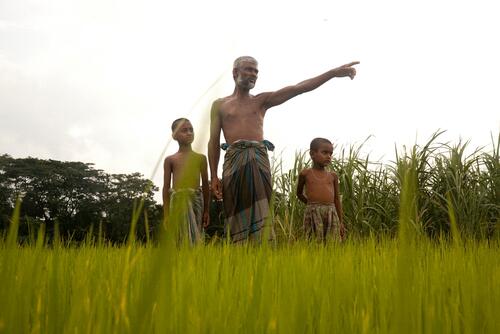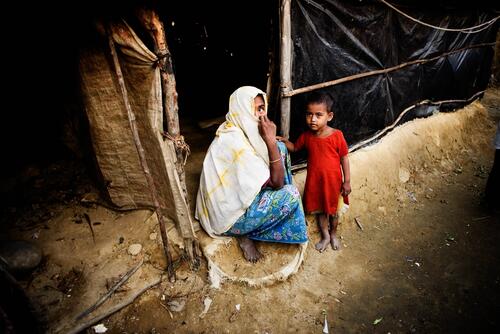A violent crackdown against stateless Rohingya in Bangladesh is forcing thousands of people to flee in fear. Driven from their homes throughout Cox's Bazaar district by local authorities and citizens, many have sought refuge at Kutupalong makeshift camp. Here, medical organisation Médecins Sans Frontières (MSF) is treating victims of beatings and harassment, including people the Bangladeshi Border Force has attempted to forcibly repatriate to Myanmar. As camp numbers continue to swell, conditions pose a significant risk to people's health.
In a report released today, February 18, 2010, MSF calls for an immediate end to the violence, along with urgent measures by the Government of Bangladesh and United Nations High Commission for Refugees (UNHCR) to increase protection to Rohingya seeking asylum in the country.
"More than 6,000 people have arrived at the makeshift camp since October, 2,000 of those in January alone," explained MSF Head of Mission for Bangladesh Paul Critchley. "People are crowding into a crammed and unsanitary patch of ground with no infrastructure to support them. Prevented from working to support themselves, neither are they permitted food aid. As the numbers swell and resources become increasingly scarce, we are extremely concerned about the deepening crisis."
For decades, thousands of Rohingya, an ethnic and religious minority from Myanmar, have sought refuge in Bangladesh. However, a mere 28,000 are recognised as prima facie refugees by the government, and live in official camps under the supervision of UNHCR. In sharp contrast, more than 200,000 people struggle to survive unrecognised and largely unassisted. In a densely populated country in which strong competition over work, living space and resources is inevitable at a local level, the stateless Rohingya are left highly vulnerable.
"It is imperative that the Government of Bangladesh act immediately to stop the violence and provide these people with the protection to which they are entitled," Mr. Critchley concluded. "The UNHCR also needs to take greater steps toward developing a clear policy to tackle the issue, and must not let the terms of its agreement with the government undermine its role as international protector of those who have lost the protection of their state, or who have no state to turn to."
As the Thai boat crisis of 2009 made clear, regional solutions are needed to the situation of the stateless Rohingya. The international community must support the government of Bangladesh and the UNHCR to adopt measures to guarantee the unregistered Rohingya's lasting dignity and well-being in Bangladesh.
MSF has been providing healthcare in Bangladesh since 1992. Currently, as well as the basic healthcare programme in Kutupalong, MSF has opened a kala azar treatment programme in Fulbaria Upazila, and runs a basic healthcare programme in the Chittagong Hill Tracts. MSF also assisted tens of thousands of people affected by Cyclone Aila, which struck Bangladesh in late May 2009.





